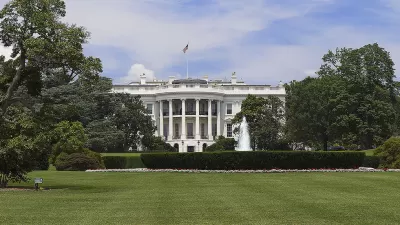The Washington Post takes stock of the Home Affordable Modification Program (HAMP) in its final days, finding a program hampered by bad faith from large banks and bad oversight by the Treasury Department.
"When the Obama administration announced a massive effort to help distressed homeowners in 2009, it set high expectations. The program, government officials said, would keep up to 4 million borrowers out of foreclosure," according to an article by Renae Merle.
Six years later, and seemingly eons removed from the fear provoked by the housing crisis of the Great Recession, the Home Affordable Modification Program accepted its final applications earlier this week. "About 1.6 million borrowers have seen their mortgage payments lowered through the program so far, but about a third of those people eventually fell behind on their payments again," writes Merle.
The gap between HAMP's goals and its achievements is sizable, and there is plenty of blame to go around:
…the effort has been bedeviled by complaints that banks repeatedly lost homeowners’ paperwork or incorrectly told them that they didn’t qualify for help. The Treasury Department didn’t act quickly enough to force banks to abide by the rules of the program, housing advocates have said. Nearly 70 percent of the homeowners who applied for the program were rejected, according to government data.
A 2014 report even found evidence that Black and Hispanic borrowers faced discrimination by HAMP. Those are not the troubling accusations leveled at the banking industry in the article, but banks will continue to receive billions in incentive payments after the program expires, despite having repeatedly broken the rules of the program.
Merle's coverage also pivots to a discussion of the accomplishments of the Home Affordable Refinance Program (HARP), which has also fallen short of targets and has been extended several times. HARP is set to expire in September 2017.
FULL STORY: After helping a fraction of homeowners expected, Obama’s foreclosure prevention program is finally ending

Alabama: Trump Terminates Settlements for Black Communities Harmed By Raw Sewage
Trump deemed the landmark civil rights agreement “illegal DEI and environmental justice policy.”

Study: Maui’s Plan to Convert Vacation Rentals to Long-Term Housing Could Cause Nearly $1 Billion Economic Loss
The plan would reduce visitor accommodation by 25% resulting in 1,900 jobs lost.

Planetizen Federal Action Tracker
A weekly monitor of how Trump’s orders and actions are impacting planners and planning in America.

Waymo Gets Permission to Map SF’s Market Street
If allowed to operate on the traffic-restricted street, Waymo’s autonomous taxis would have a leg up over ride-hailing competitors — and counter the city’s efforts to grow bike and pedestrian on the thoroughfare.

Parklet Symposium Highlights the Success of Shared Spaces
Parklets got a boost during the Covid-19 pandemic, when the concept was translated to outdoor dining programs that offered restaurants a lifeline during the shutdown.

Federal Homelessness Agency Places Entire Staff on Leave
The U.S. Interagency Council on Homelessness is the only federal agency dedicated to preventing and ending homelessness.
Urban Design for Planners 1: Software Tools
This six-course series explores essential urban design concepts using open source software and equips planners with the tools they need to participate fully in the urban design process.
Planning for Universal Design
Learn the tools for implementing Universal Design in planning regulations.
Caltrans
Smith Gee Studio
Institute for Housing and Urban Development Studies (IHS)
City of Grandview
Harvard GSD Executive Education
Toledo-Lucas County Plan Commissions
Salt Lake City
NYU Wagner Graduate School of Public Service




























